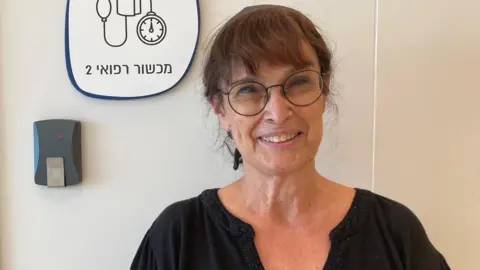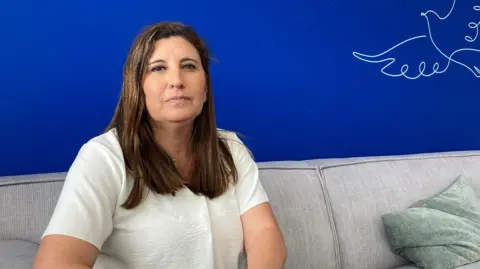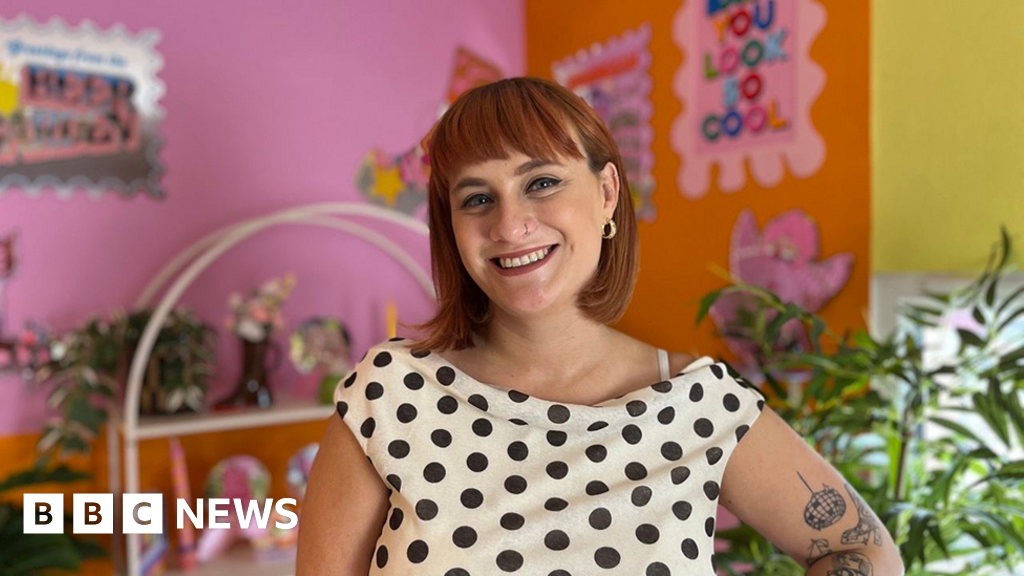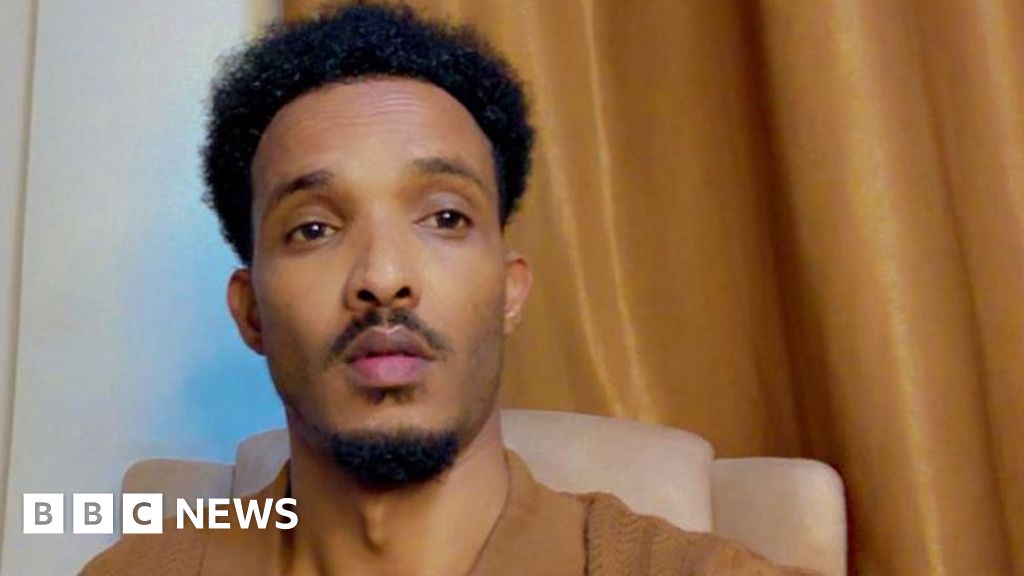
 BBC
BBC
Dr Steinman says working at the unit has taught her the "strength of the human spirit"
When the first hostages are released by Hamas in Gaza, taken into Israel and transferred by helicopter to the Rabin Medical Center in Petah Tikva, Dr Mikhal Steinman will take them up to the sixth floor, swipe open the glass door and see them reunite with their closest family after more than 700 days in captivity.
"It is a privilege," says the head of nursing. "These are the moments, when I'm 70 or 80, these are the two or three moments I will remember. They symbolise so many values – as a nurse, as a mother, as a woman, as an Israeli."
Twenty living hostages are due to be released under the terms of the agreement between Israel and Hamas. Several of them will be brought to this hospital.
It will be the third time that the hostages' unit has gone operational after the two previous hostage releases in November 2023 and January this year. The BBC visited the unit on Saturday, when the medical team learned the identities of the hostages they would be treating.
"There is no such field as captivity medicine, and we are inventing it," said Dr Steinman told the BBC on Saturday, after the team learned the identities of the hostages they would be treating.
The staff have learned two big lessons from the two previous hostage releases in November 2023 and January this year, she says.
The first is to be "a medical detective", to try to understand what happened in those long days and nights of captivity.
With earlier, often emaciated, shackled, beaten hostages, "they had things in their blood exams, in their enzymes, that we couldn't understand".
- Follow live updates
- Who are the 48 hostages still held in Gaza?
- What we know about the Gaza ceasefire agreement
- Palestinians return to devastation in Gaza City
They also have learned that symptoms may not present for days or weeks.
"Captivity does things to your body that your body remembers. You see all these layers. It takes time to see what happened to their bodies, to their souls," she said.
"We're still taking care of the hostages who came back in January and February, and every week we discover new things."

 Reuters
Reuters
It's the third time the hospital's unit has received freed hostages after previous release deals in late 2023 and January this year (file photo)
The other lesson is to take time. There are a huge number of professionals from different disciplines: nutritionists, social workers, mental health specialists, along with the full panoply of medical staff.
But there is also a "do not disturb" card on the door of each released hostage's private room. The echoes of a hotel are deliberate, as are the care packages and soft furnishings and soft lighting to go with the hospital bed and monitors. There is an extra single bed made up for those hostages who don't want to be left alone overnight, so that a partner or relative can sleep alongside them. Their closest family will also have their own bedroom directly across the corridor from the hostage's.
"You know medical people are task-oriented. There's a schedule," says Dr Steinman. "Here you have to give them much more space. You have to decide what's urgent, and what can wait another two days. You have to be humble and flexible, without letting go of your medical responsibility."
Among those responsibilities is determining what the hostages, some of whom may have lost more than half their body weight in captivity, can eat, and how quickly.
Their physical recuperation is only part of the story. Karina Shwartz is director of social work at the Rabin Medical Center. She is another key member of the team, with a responsibility not just for the hostages but for their closest relatives. They need to learn their own delicate calibration of family dynamics – of when to speak and when not to, she says.
"The most important thing is what we're not saying," she says. "Because if we're sitting in the room, and someone tells us something very difficult about how they almost died in captivity, and we stay silent: it's a very loud silence."
But at the same time, there is a need to hold back. "We can't speak about two years in a week. The hostages need space and time. They also need quiet. We have to listen. To listen to their story."


Karina Shwartz and her team will prepare the hostages to leave the hospital and re-enter the outside world
The staff in the hostage returns unit emphasise that their job does not end when the hostages return home. Medical and psychological rehabilitation will continue and the hostages must also be prepared, says Ms Shwartz, for the moment "when the real world comes in".
The message she and her team try to drill into the hostages and their families is that everyone will want to see them. For two years they have been public figures.
"Everyone will want to be friends. We tell them: it's okay to say no. It's safe to say no."
For now, the nervous anticipation among the staff is palpable.
"You should see my WhatsApp messages," says Dr Steinman, a very Israeli director of nursing with her nose piercing and multiple tattoos.
Pretty much every single one of her 1,700 nurses across the medical complex has, she says, volunteered to pull extra shifts on the unit.
"You gain hope again," she says. "Working here you realise that life and human beings are good. You realise the strength of the human spirit."
And yet, the greatest pleasure, she says, will be for that work to be over.
"This is the third time we're opening the unit. To know that this is the last time: that when we close this place and say the mission is done. Then we will know that the nightmare is over."
.png)
 2 months ago
10
2 months ago
10








 English (US) ·
English (US) ·